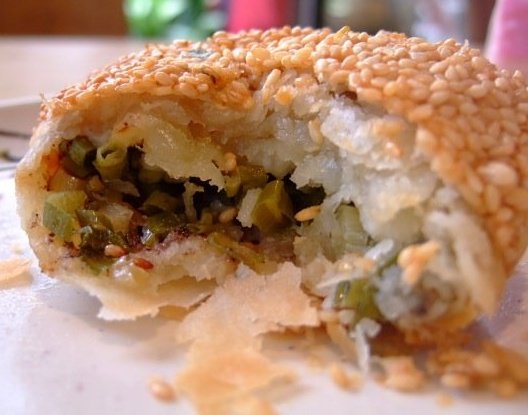I met her and her 20 year-old son on the slow and shambly bus ride back from Kep to Phnom Penh, where we were all living. Her face was weathered but her eyes dignified. She was a strong Chinese woman. The boy had the excited and innocent curiosity of youth. He peppered me with a stream of questions, “How much money do you make? How are you able to work in America? Did you have to marry someone there? You are not married yet and you’re 25, why not?!? Do you have any brothers or sisters? Are they married?” I was happy to oblige him with the unexciting answers to these questions, mundane details of my life. To him they offered a glimpse into a very foreign but very famous world from someone he could, at least on a certain level, relate to. After all, I was also Chinese, a fellow ‘hua ren’ and in Cambodia at that. He could view me as his “older sister,” his jie jie. When I told him I had graduated from college he exclaimed “Wah! Ni zhen li hai!” -- “Wow! You are so super-capable!” I felt that he was sincerely proud of me, and I was touched.
The three of us spoke like that in Chinese, each with our particular accents and variations of the language. These subtle and not-so-subtle differences in our Mandarin revealed our common history through stories many worlds apart.
She told me about how she lost her family to the Khmer Rouge. She was not yet 30 then. They were living in Phnom Penh until the Khmer Rouge soldiers forced them to evacuate the city for the countryside provinces. It was an agrarian-Communist revolution, one which had no tolerance for indolent city-dwellers who contributed nothing to their equal society. During the mass exodus she was split from her parents and brothers and sisters. From what I could understand, she believes they were taken to jail. Carrying her two babies, she somehow managed to escape to the provinces and survive. She hasn’t seen her family since, and she is neither hopeful nor optimistic about their fates.
I asked her when she came to Cambodia, what part of China her “old family” was from. “Born and raised,” she asserted matter-of-factly, “born soon after my parents moved here from China.” In my mind I do the math – she is 60, so her parents would have moved here sometime in the late 40s. The significance of these numbers tell me of an unreal hyper-tragedy. To live in your home country in times of a world war that it is deeply involved in, to endure the bone-chilling atrocities committed against you, your family, and your neighbors by the invading Japanese; to subsequently escape your own country’s civil war, to escape the impending Communist takeover and a life you cannot or will not accept – to run away from all that and start anew, raise a family. To do that in Cambodia, a new land where you once again can begin to nourish hopes of establishing a normal way to live. To do all that, to survive all that, only to be greeted, less than thirty years later, with yet another oppressive regime that brings even more insufferable horrors and strife to you and your family. And in the process you lose your daughter, perhaps your wife or husband. And in the end? In the end perhaps you are tortured in prison, or taken to a field and slaughtered with the masses, never again to see your daughter, the one who manages to survive you. Perhaps.
This is the kind of story that not even one bone in my body can begin to comprehend. What does this woman see when she looks around her? Does she see more deeply than I, or is the surface all that her mind can take in? I cannot even guess. Yet her story does remind me of something I do know well. It reminds me of my own grandparents’ war and escape stories that I will never grow tired of hearing, as well as those of other families. It reminds me of what my mother once told me about history – everyone has a story. And here I see it’s true. Everyone—every family, every building, every road—has quite a story to share.
